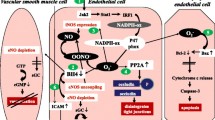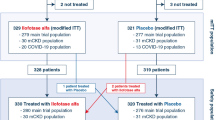Purpose
To investigate the effect of N-acetylcysteine on preventing pump-induced oxidoinflammatory response during cardiopulmonary bypass (CPB).
Methods
Forty patients undergoing coronary artery bypass grafting (CABG) were randomly divided into a study group (n = 20), given 50 mg kg−1 N-acetylcysteine intravenously for 3 days, and a control group (n = 20) given saline. Serum samples were collected for measurement of myeloperoxidase (MPO), malondialdehyde (MDA), interleukin-6, Α1-acid glycoprotein (AAGP), and C-reactive protein (CRP) during surgery and postoperatively.
Results
The MPO and MDA values showed a similar pattern during and after CPB in the study group, with significantly less variance than in the control group. Interleukin-6 showed similar patterns in the two groups, but the data from 30 min after the start of CPB and from 6 h post-CPB were significantly different. The AAGP and CRP values were both elevated during CPB in the two groups without a significant difference, but 6 and 24 h post-CPB, the values were significantly higher in the control group than in the study group.
Conclusions
N-Acetylcysteine decreased pump-induced oxidoinflammatory response during CPB, suggesting that it could be a novel therapy for assisting in the prevention of CBP-induced oxidoinflammatory damage.
Similar content being viewed by others
Author information
Authors and Affiliations
Rights and permissions
About this article
Cite this article
Sucu, N., Cinel, I., Unlu, A. et al. N-Acetylcysteine for Preventing Pump-Induced Oxidoinflammatory Response During Cardiopulmonary Bypass. Surg Today 34, 237–242 (2004). https://doi.org/10.1007/s00595-003-2699-8
Received:
Accepted:
Issue Date:
DOI: https://doi.org/10.1007/s00595-003-2699-8




